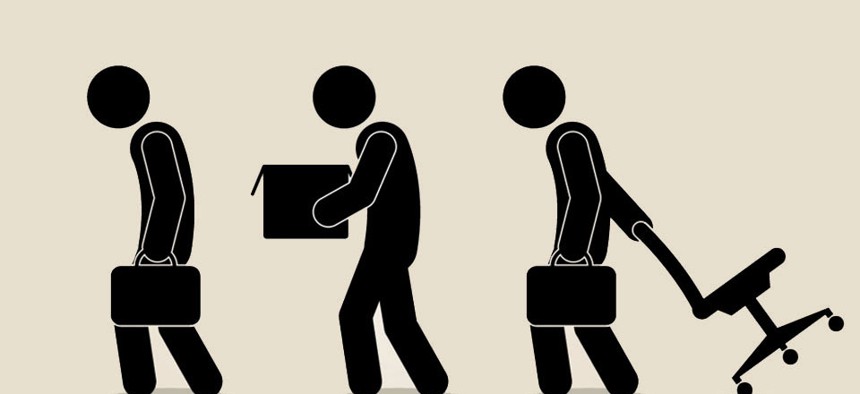
iluistrator/Shutterstock.com
Federal Government Sheds Almost 80,000 Jobs in 2013
Agencies end the year with a net loss of 2,000 jobs in December.
The federal government shed 2,000 jobs in December, ending 2013 with a net loss of 79,000 positions, according to the latest figures from the Bureau of Labor Statistics.
Federal agencies, excluding the U.S. Postal Service, lost 4,200 jobs in December, while USPS actually gained 2,200 employees in the month.
The U.S. economy overall added just 74,000 jobs, a disappointing figure that fell far below expectations. The unemployment rate actually dipped, however, to 6.7 percent, primarily due to people dropping out of the labor force.
Federal government job loss has slowed somewhat in recent months. In October, agencies shed 12,000 positions and have lost 94,000 jobs in the previous 12 months. This corresponds to a reduction in the number of employees retiring from federal service, which trended downward in November and December.
Agencies are still awaiting their appropriations for the remainder of fiscal 2014, but with the sequester partially repealed for two years thanks to the recent budget agreement, federal offices may begin rolling back the hiring freezes that have heavily contributed to the net job losses across government.
The total federal workforce -- including military personnel and USPS employees -- sits around 4.3 million. That number is likely to continue to shrink, however, as the military plans to withdraw its remaining troops in Afghanistan this year and the Postal Service continues to look to reduce staffing.
Many congressional Republicans, including House Budget Committee Chairman Paul Ryan of Wisconsin, want to downsize the federal workforce through attrition, which means hiring fewer employees to replace those who leave government. Ryan’s initial plan, for example, proposed cutting the workforce by 10 percent through attrition by 2015. Ryan co-authored the 2014-2015 budget blueprint, but it did not include any mandates for federal workforce reductions.
(Image via iluistrator/Shutterstock.com)
NEXT STORY: 3 Ways to Make Your Resume Better







